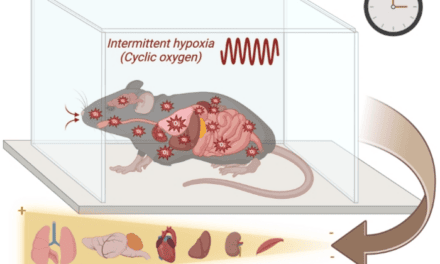Patients who were denied bariatric surgery for insurance reasons developed a slew of new obesity-related diseases and conditions, including sleep apnea, within 3 years of follow-up, according to a new study presented at the 27th Annual Meeting of the American Society for Metabolic & Bariatric Surgery (ASMBS).
Researchers at Gundersen Lutheran Health System in La Crosse, Wis, compared the medical records of 587 patients who had laparoscopic gastric bypass (LGB) with 189 patients who were medically eligible, but denied bariatric surgery by their insurance provider during the period 2001 to 2007. At the time of initial medical evaluation, patients in both groups had an average body mass index (BMI) of about 48. The goal of the research was to track the development of five obesity-related conditions in patients who were denied treatment and in patients who had bariatric surgery.
After 3 years, the average BMI in the surgical group had dropped to 30.5 and less than 1% of patients developed new obesity-related conditions, while a large number of patients in the denial group grew unhealthier. Though BMIs remained relatively unchanged in the denial group, 34% developed obstructive sleep apnea, more than 40% developed hypertension, and nearly 20% developed gastroesophageal reflux disease (GERD). Type 2 diabetes and lipid disorders developed in 9% and more than 11%, respectively.
“It is well known that bariatric surgery treats obesity-related diseases; our study now shows that it can prevent new diseases from occurring,” said Shanu N. Kothari, MD, senior author of the study and a bariatric surgeon at the Gundersen Lutheran Health System. “Health insurers should take this data into consideration when making decisions about whether or not to cover bariatric surgery. It is not only about the patient’s current health status, but what is likely to happen to them in a relatively short period of time without access to weight loss surgery.”
Previous studies have documented the beneficial effects of bariatric surgery. A 2004 study published in the Journal of the American Medical Association (JAMA) showed bariatric surgery patients lost between 62% and 75% of their excess weight and resolved or improved a number of obesity-related conditions including sleep apnea (eliminated in more than 85%), Type 2 diabetes (remission in 76.8% and significant improvement in 86%); hypertension (eliminated in 61.7% and significant improvement in 78.5%); and high cholesterol (reduced in more than 70%).
Other studies show that obese individuals spend 36% more on health care costs and 77% more on medications per year than individuals of normal weight, and that annual obesity-related health spending reached $147 billion in 2008, double what it was a decade ago.
People who are considered eligible for surgery are morbidly obese, which is generally 75 to 100 or more pounds overweight, and have a BMI of 40 or more, or a BMI of 35 or more with an obesity-related disease, such as Type 2 diabetes, heart disease, or sleep apnea.


